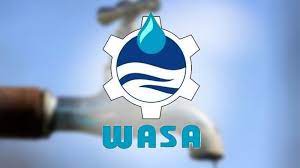Water and Sanitation Agency (WASA) Rawalpindi recently announced several measures to provide clean drinking water to the citizens. On the eve of World Water Day, WASA authorities announced a wide range of measures to repair and renovate mini-filtration plants across the city besides timely replacement of filters, purification, and improvement of water quality. As said, WASA authorities are aware of the citizens’ problems and the usage/importance of clean water in citizenry life, hence every effort is being made to ensure doorstep service delivery to the masses. Our country faces a water crisis due to a lack of access to clean drinking water, shortage, or mismanagement of water resources, and the worst effects of climate change which leads to water waste in case of glacier melt or either nonavailability of water in case of droughts and desertification in certain regions. Poor water quality often leads to waterborne disease-causing 16% of child deaths.
According to a UN report, one-third of the 240 million populace do not have access to clean drinking water. The lack of access to safe drinking water and the presence of stagnant water in the streets lead to the outbreak of dangerous diseases such as cholera, diarrhea, dengue, and Malaria. In fact, clean and safe drinking water is of utmost importance for human health. Water makes up over 60% of the human body, it reduces body temperature and generates flexibility and mobility in the human body. Access to clean water is a fundamental right of all citizens. The Sustainable Development Goal (SDG) 6.1 aims for universal and equitable access to safe and affordable drinking water. However, geographical and sociocultural disparities cause difficulties in the provision of clean water in rural and far-flung areas in the country. No provision of clean drinking water is a widespread problem in urban as well as rural areas across the country, which requires urgent action, investment, and a political commitment to ensuring the provision of clean drinking water to a cent percent population in the country. Although, WASA authorities have issued a ceremonial press release to celebrate World Water Day, yet their professionalism and commitment to the cause will be evident through service delivery to the public in the days to come.







